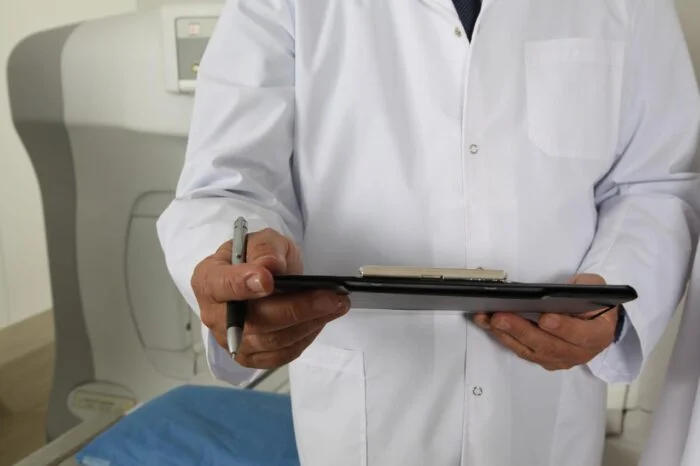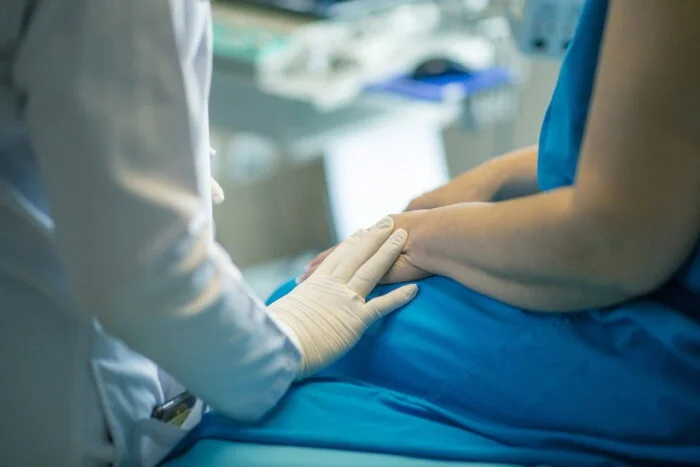Effects of Substance Abuse on Lymph Nodes
Drinking and abusing alcohol can have both long and short-term effects on the body and on your own mental health.
Abusing alcohol on a regular basis can have an impact on your liver, your heart, blood pressure, pancreas and importantly, your lymphatic system.
Start your treatment journey today by calling us on 0800 088 66 86
What is the Lymphatic System?

The lymphatic system is an important part of your immune system and is responsible for ensuring that you are able to avoid infections and fight off diseases.
Essentially, the lymphatic system consists of a network of tubes throughout the body, which act as your body’s drainage system.
The lymphatic system is responsible for looking after a major network of vessels throughout your body [1] and allows your lymph to produce and circulate fluid throughout your body.
This is just as important as the heart’s ability to pump and circulate blood throughout your body.
In fact, there are 600 lymph nodes that run throughout your body. When someone becomes poorly and gets an infection, these nodes swell.
This means that more fluid is created than usual, which might also contain more bacteria and other fluids that will make you feel unwell. Naturally, your immune system will struggle to keep up.
Usually, this will result in a sore throat or ear infection, and doctors and healthcare professionals might want to examine your throat and under your arms (where your lymph nodes are located) to see how severe your infection is.
The lymphatic fluid, often named interstitial fluid, is able to regulate your body’s response to inflammation and disease and will help you to avoid these diseases and infections by distributing the fluid and immune cells around your body via receptors.
There are three main parts to the lymphatic system. These are known as lymphatic vessels, lymph nodes and the lymph.
1. Lymphatic vessels
Lymphatic vessels are responsible for feeding your tissues and allowing your lymphatic fluid to move around the body so that they don’t build up.
Essentially, these vessels are responsible for draining lymphatic fluid, so that you don’t get a build up, making you more prone to infections.
Lymphatic trunks merge until the lymph itself moves into two lymphatic ducts, which are responsible for draining most parts of the body. When this isn’t able to work properly, your lymphatic vessels aren’t able to drain the body in the way that they should.
2. Lymph nodes
If lymphatic vessels are the body’s drains, then the lymphatic nodes are the filters to say what should and should not be drained.
The lymph nodes are located in the lymph itself and are responsible for helping to rid the body of damaged cells.
They help to look after the body’s white blood cells, whilst trying to destroy any infections organisms found inside the body.
In order for your lymph nodes to operate fully, you must have a strong immune system.
3. The Lymph
The lymph is the fluid that helps to nourish your body and can help the lymph nodes to rid the body of any damaged cells or infections. They help to drain any build-up of fluid, avoiding any infections or diseases.
To learn more about the lymphatic system and how it can be impacted by addiction, call our team today on 0800 088 66 86
Goals of a Healthy Lymphatic System

The goal of any healthy lymphatic system is to avoid infections or diseases. As stated, a healthy lymphatic system will act as your body’s ‘drainage system.’
Your lymphatic system wants to drain and rid the body of any illnesses whilst also maintaining a healthy body and immune system by looking after your white blood cells.
Essentially, the lymphatic system is responsible for maintaining your body’s fluid homeostasis.
This means that it helps to maintain the balance of fluid in your body compared to tissues within your body.
This also means that it will be able to maintain your body’s immune system and also help with things such as digestion, as your lymphatic system also helps to absorb fat within the digestive system.
Get the help you need to live a healthy, happy life by calling us on 0800 088 66 86
Alcohol’s Effect on the Lymphatic System & Body

If you drink or binge alcohol on a regular basis, then you might be damaging your body.
Drinking alcohol excessively on a regular basis has a huge effect on your body, and can damage your liver, [2] heart, immune system, thyroid and can increase your chances of developing high blood pressure, heart disease or a stroke. [3]
Essentially, when you drink alcohol, your lymphatic system is disrupted. This means that it is not able to flush any damaging toxins, infections or bacteria out of the system.
This is because alcohol itself is a toxin, so the body and lymphatic system become overloaded [4] when individuals binge drink or drink excessively on a regular basis.
1. Weakened immune system
The lymphatic system struggles to keep up, meaning that it is not able to do its job properly and your immune system becomes weaker.
As a result of this, you are much more likely to pick up infections or illnesses.
Likewise, the more you drink, the more damage you will be doing to your liver, pancreas and intestine. These organs hold many cells which also help to regulate your immune system and when damaged, cannot do their job properly.
Below are some of the other ways drinking alcohol excessively affects the body and your lymphatic system.
2. Infections, Inflammation & Swelling on the Lymph Nodes
There are around 600 lymph nodes around the body, which will swell up when you have an infection or illness. Whilst drinking alcohol might not lead directly to the swelling of your lymph nodes, your weakened immune system might.
It is important to remember that swollen lymph nodes are a symptom of another illness, not a disease.
It is important to get to the root cause of your issues if your lymph nodes are swollen, especially if you drink or binge alcohol on a regular basis and it’s starting to affect your health.
If your lymph nodes are swollen, then this might be a sign that you are suffering from an illness such as a bacterial infection, a type of cancer, lymphadenitis, a viral infection or an auto-immune disorder.
3. Liver disease
According to numerous studies, [5] alcohol remains a major cause of liver disease across the world. Alcoholic liver disease (ALD) can have life-altering effects.
The liver is responsible for breaking down alcohol but will struggle to do so if the liver becomes damaged by excessive alcohol use.
There are three stages to alcoholic liver disease, including having an alcoholic fatty liver, alcoholic hepatitis and alcoholic cirrhosis, where the liver is so damaged that this now leads to irreversible damage and hypertension.
Find the support you need to overcome addiction and the damage it can do to your body by calling us on 0800 088 66 86
Symptoms of a Damaged Lymphatic System

Swollen lymph nodes are a sign that your immune system isn’t able to function the way that it usually would and that you are suffering from an illness somewhere in your body.
There are a number of signs and symptoms that your lymphatic system is struggling to work, whether that is from excessive alcohol abuse or another illness.
Some of these symptoms are:
- Tenderness in and around your lymph nodes, including by your throat, under your arms and by your groin
- Swelling of the lymph nodes, including by the throat, under your arms or by your groin, which could be as small as the size of a pea
- A runny nose or other flu-like symptoms
- A sore throat
- Fever
- Night sweats
If you recognise any of these signs or symptoms, then there might be a chance that your lymph nodes are swollen and that the lymphatic system is trying to fend off an illness.
If this is the case, then speak to a qualified medical health professional as soon as possible for help and advice.
Started spotting the signs of a damaged lymphatic system? Get the help you need by calling us on 0800 088 66 86
When to Seek Medical Attention

If you drink alcohol excessively and notice that your lymph nodes are swollen or irritated in any way, then it is important to keep a close eye on your lymph nodes and seek medical advice and attention if you think that you are suffering from an infection or illness of any kind.
If you have swollen lymph nodes for longer than two weeks, then make an appointment with your local GP, as you might be suffering from an illness or infection that requires antibiotics in order to recover.
Likewise, if you suffer from swollen lymph nodes and notice that you are also suffering from night sweats, fevers or chills, then make sure you seek medical advice.
Some people might also lose weight whilst they are ill, which could also be a cause for concern.
Some people might also notice that they can feel hard lumps under their arms, by their groin or by their throat, which might feel sore to touch.
If this is the case, then make sure that you seek medical advice from a healthcare professional.
Ensure that you get the help you need to treat your medical and addiction needs by calling us on 0800 088 66 86
How to Get Help for an Alcohol Addiction

If you think that your drinking habits are damaging your lymphatic system and body, then you need to seek help from medical and healthcare professionals.
If you think you need help, then many options are available to you.
The first thing that you should do is reach out to a healthcare professional for help.
This could be your local GP or a local drug and alcohol team. You could also reach out to charity for help and support, or seek the support of a free service like Rehab Recovery.
Once the severity of your alcohol addiction has been assessed and confirmed, you will then be able to start your treatment plan.
This will usually consist of either an inpatient or outpatient rehab treatment plan, where you will undergo a medical detox before then continuing your treatment with therapy treatment.
If you suffer from an alcohol addiction, then your body will need to overcome its physical dependence in order to recover.
This means that you need to detox and withdraw from the substance, so that your body no longer craves or depends on the substance in order to operate.
Once this has been completed, you will then receive a range of different therapy techniques, including cognitive behavioural therapy to tackle the psychological side of your addiction and get to the root causes of your addiction and any mental health issues that you might also suffer from.
Don’t let addiction control your life – call our team today on 0800 088 66 86
Talk to Rehab Recovery

If you are suffering from a mild, moderate or severe addiction to alcohol or any other type of substance, then talk to our team at Rehab Recovery.
At Rehab Recovery, we believe in recovery for all.
Our team of experts are on hand to listen and find the best course for treatment for you, taking into account your specific circumstances, condition and budget.
We are able to offer support when it comes to drug and alcohol interventions, alcohol detox, drug detox, mental health support and other evidence based treatments.
We’re able to support you throughout the admissions process and will be able to recommend the best rehab treatment centres for you in your area.
Start your treatment journey today by calling us on 0800 088 66 86
References
[1] https://www.sciencedirect.com/science/article/pii/S2352345X16301035
[3] https://www.ncbi.nlm.nih.gov/pmc/articles/PMC7641555/
[4] https://www.cdc.gov/alcohol/fact-sheets/alcohol-use.htm
[5] https://journals.lww.com/ajg/citation/2018/




